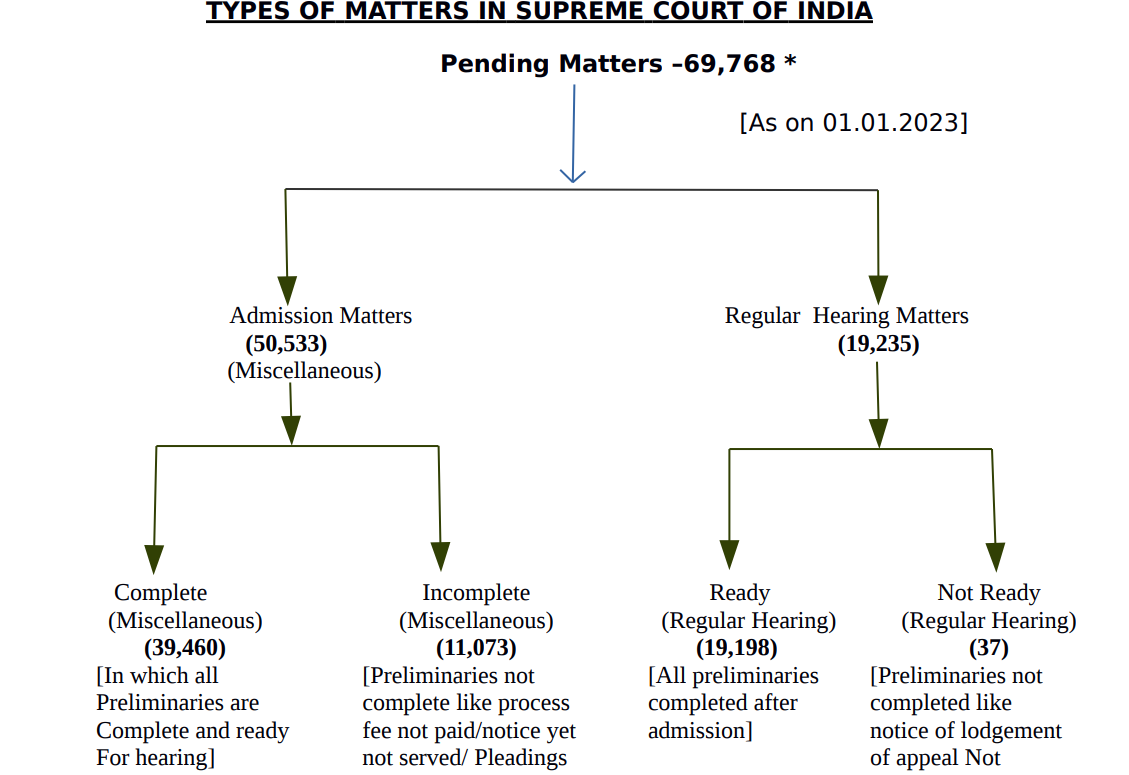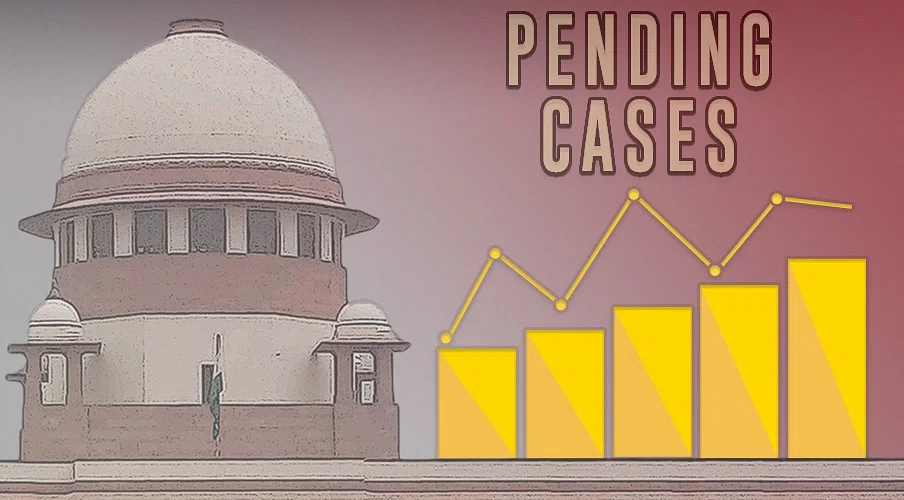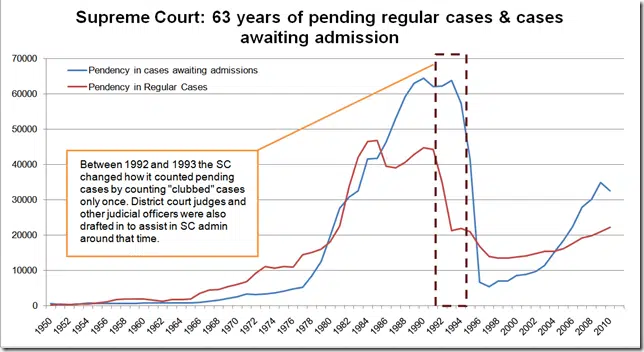Justice delayed is justice denied
The judiciary is supreme, despite the fact that there are different types of courts for each aspect of the law, such as mediation to solve cases faster, the consumer forum, which handles only consumer affairs, as well as trial courts and district courts, which have thousands of pending cases.
According to the Supreme Court’s statistics, 70,362 cases were pending as of April 1, 2022. More than 19% of them are not prepared to appear before a Bench since they have not completed the necessary preliminary steps. Of the 52,110 cases, 18,522 have regular hearings.

Slow Judiciary hearing in India:
11,110 of the 69,768 pending cases cannot be listed for a “hearing” (11,073 incomplete Miscellaneous cases and 37 Not Ready Regular Hearing cases).
Over 71,000 Cases Pending In Supreme Court, 59 Lakhs In High Courts
The reason for slow jurisdiction is a dormant legislature and an uninterested executive. The need for more judges to be appointed and more courts to be established has long been voiced by the legal system. When stressing the urgent need for more judges and courts in front of Prime Minister Narendra Modi, then Chief Justice T. S. Thakur broke down in tears, encapsulating the dissatisfaction felt by the judiciary in this issue.
The judiciary in India lacks adequate funding. Increased spending on the judiciary is neither desired by the Centre nor the States. The total budgetary allotments for the judiciary range from a pitiful 0.1% to 0.4%. India requires additional benches and courts. Not all courts have adopted modernization and computerization yet.
The judiciary is unable to become involved in this. The Legislature and the Executive are in charge of adding courts and selecting judges under the Constitution’s system of separation of powers, but neither one of them is particularly interested in the judiciary, which they see as a hindrance rather than a necessity. The Government will always prefer tribunals because they have the authority to appoint and fire members and because they can set the terms for tribunals while being unable to do so for courts.
Inaugurating the Northern Regional Conference on Enhancing Access to Justice, which was held by the Uttar Pradesh State Legal Services Authority in Varanasi on Saturday, Justice Sanjay Kishan Kaul, Judge of the Supreme Court of India and Executive Chairperson of NALSA, said that in order to resolve the pending bail and remission cases, some sort of revolution and unconventional thinking were needed.

“Delay is one of the major barriers and this happens for a variety of reasons like a large volume of cases, not enough judges, and adjournments for various reasons (one of them being lawyers not being available)













